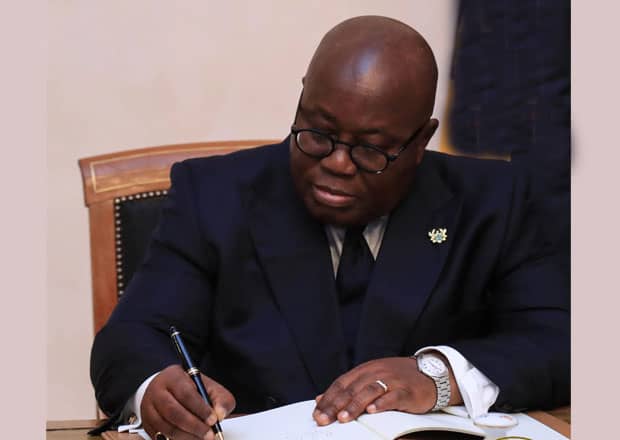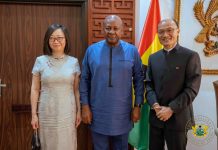President Nana Addo Dankwa Akufo-Addo has announced that Ghana has earned approximately $800 million through carbon credit trading with other nations.
The funds are aimed at financing climate-resilient projects as part of efforts to reduce global carbon emissions.

Carbon credits represent payments made by companies or individuals to entities that reduce or remove greenhouse gas emissions, compensating for the emissions produced elsewhere.
Speaking at the opening of the 29th Conference of Parties (COP29) in Baku, Azerbaijan, the President revealed that Ghana’s carbon credit trade mainly involves European countries, including Sweden and Switzerland, through their carbon markets.
“Through Article 6 of the Paris Agreement, Ghana has mobilized $800 million by trading carbon credits with nations like Switzerland and Sweden,” President Akufo-Addo said.
He emphasized Ghana’s goal to reduce its carbon emissions by 64 million metric tons of carbon dioxide equivalent (MtCO2e) by 2030. Since 2021, Ghana has implemented 13 mitigation actions that have already cut annual greenhouse gas emissions by 43%.
Despite facing financial and technical challenges, the country remains committed to meeting the Paris Agreement’s targets across various sectors, including agriculture, forestry, and energy.
The President reiterated the government’s commitment to safeguarding the environment and addressing the impacts of climate change, which directly affect farmers, coastal areas, and communities.
“Climate change is real and immediately affects our farmers, coastlines and communities. Our children’s future hinges on our decisions,” he stated.
He also called on global leaders to honor their promises of financing sustainable development in Africa, a region that contributes minimally to global emissions but suffers disproportionately from climate change impacts.
“We urge our global partners to fulfill their commitments, ensuring accessible concessional financing for sustainable development in Africa without resorting to unsustainable debts,” he added.
In his remarks, Simon Stiell, the Executive Secretary of the United Nations Framework Convention on Climate Change (UNFCCC), highlighted the far-reaching consequences of the climate crisis on humanity and national economies. He stressed that no country should hinder global efforts to tackle climate change.
Stiell also noted the frustration that despite the climate crisis affecting everyone, a single COP could not achieve the full transformation needed.
However, he remained optimistic, drawing inspiration from human ingenuity and determination to overcome challenges and achieve climate goals.
The COP29 summit, one of the largest gatherings of world leaders, aims to accelerate progress toward the Paris Agreement’s climate objectives.
Around 50,000 delegates, including over 100 representatives from Africa, are participating in the event alongside other UN member states, the State of Palestine, the Holy See, the Cook Islands, and the European Union.
























































![[FREE FREE MONEY] Predict and Win a Guaranteed GH¢200 From Us EVERY WEEK](https://wordpress.ghanatalksradio.com/wp-content/uploads/2022/02/Predict-and-Win-Final-09-03-2021-218x150.jpg)
![[Predict & Win – 8th/Oct.] WIN A Guaranteed ¢200 From Us This Week](https://wordpress.ghanatalksradio.com/wp-content/uploads/2021/10/maxresdefault-16-218x150.jpg)
![[Predict & Win – 2nd] WIN A Guaranteed ¢200 From Us This Week](https://wordpress.ghanatalksradio.com/wp-content/uploads/2021/09/maxresdefault-50-218x150.jpg)
![[Predict & Win – 25th] WIN A Guaranteed ¢200 From Us This Week](https://wordpress.ghanatalksradio.com/wp-content/uploads/2021/09/maxresdefault-36-218x150.jpg)
![[Predict & Win – 18th] WIN A Guaranteed ¢200 From Us This Week](https://wordpress.ghanatalksradio.com/wp-content/uploads/2021/09/maxresdefault-23-218x150.jpg)







![[National cathedral] See full list of churches that have contributed since 2018](https://wordpress.ghanatalksradio.com/wp-content/uploads/2020/09/Ghana-National-Cathedral-GhanaTalksRadio-100x70.jpg)



